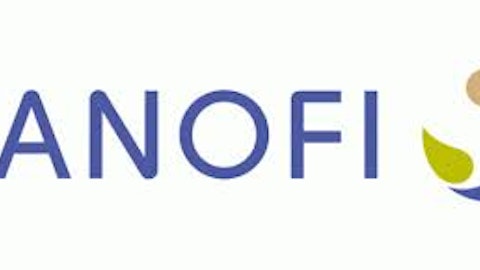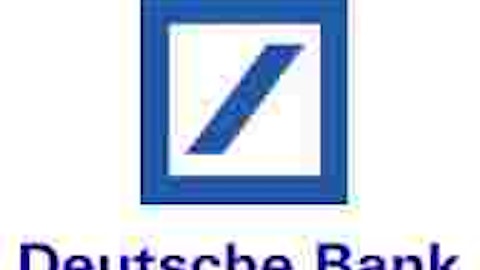Eylea needs to address some major challenges
However, Eylea must be approved to treat both AMD and DME to remain competitive against its primary competitor, Lucentis, which is marketed in the United States by Roche Holding Ltd. (ADR) (OTCMKTS:RHHBY)‘s subsidiary Genentech and sold by Novartis AG (ADR) (NYSE:NVS) internationally. Lucentis has been approved by the FDA to treat both AMD and DME, but it carries a fatality warning (6.4% death rate in patients treated with 0.5 mg doses, 4.4% rate in those treated with 0.3 mg doses) whereas Eylea does not.
However, the real problem for treatments like Eylea and Lucentis is Roche Holding Ltd. (ADR) (OTCMKTS:RHHBY)’s Avastin. Not only is Avastin good for treating cancer, as mentioned earlier, but it is also remarkably effective at treating AMD and DME for $50 per dose. By comparison, Eylea and Lucentis, respectively, cost $1,850 and $2,000 per dose.
Avastin is so versatile because it is an angiogenesis inhibitor, which slows the growth of new blood vessels. Avastin prevents a cancer from spreading by halting new blood vessels, and prevents blindness by stopping blood vessels from growing into the macula.
Lastly, a long-term problem for Eylea, Lucentis, and Avastin is the fact that they are all administered via injections. Other companies are developing non-invasive treatments that are much more appealing than sticking a needle in the eye. These include eye drops, pills, sustained-release delivery systems, and radiation treatments — all of which could eventually render this current generation of injected treatments obsolete.
Foolish final thoughts
Regeneron is a tough stock to recommend on the basis of Eylea sales alone. Eylea has sold well over the past year, but there are concerns that its growth is topping out. The major threats posed by Roche Holding Ltd. (ADR) (OTCMKTS:RHHBY) and Novartis AG (ADR) (NYSE:NVS) also make Eylea an unstable choice for permanent top and bottom line growth.
On the other hand, Regeneron Pharmaceuticals Inc (NASDAQ:REGN)’s collaboration with Sanofi to produce fully human monoclonal antibodies is very promising. Sanofi certainly has faith in Regeneron’s technology, and positive test results could lead to other major collaborations with other pharmaceutical companies. This could lead to other sources of revenue which would lessen the company’s dependence on Eylea sales.
If Regeneron can keep the Eylea engine running and gain approval for DME while churning out experimental human monoclonal antibodies with Sanofi, the company could be a good growth stock. Yet if the company loses its grasp on Eylea before securing other sources of revenue growth, investors will be badly burned.
The article Should You Follow in Sanofi’s Footsteps and Invest in This Booming Biotech? originally appeared on Fool.com and is written by Leo Sun.
Leo Sun has no position in any stocks mentioned. The Motley Fool has no position in any of the stocks mentioned.
Copyright © 1995 – 2013 The Motley Fool, LLC. All rights reserved. The Motley Fool has a disclosure policy.





